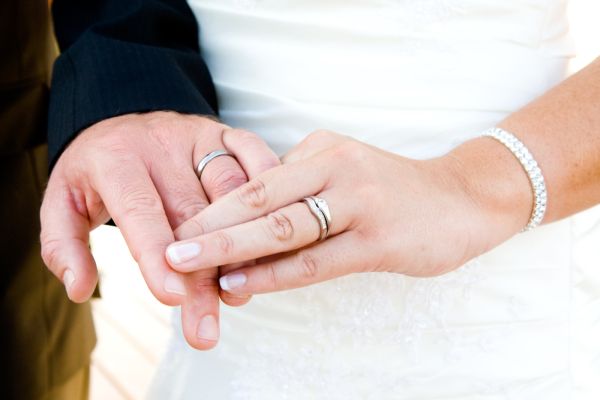As social media enthusiasts, we often forget that we live in a different type of world than everyone else. We might be more keen to open up to strangers and share our feelings with people we don’t know. It’s the world we’re living in — for us, at least, and it will continue as we spread these ideas to our peers and colleagues, all of whom will likely slowly open up to this world in due time. All paths will ultimately lead to here whether or not these “outsiders” have chosen to accept it yet.
I can empathize with the holdouts. I have family members who are really confused with how omnipresent I seem online, but at the end of the day, they take pride in that. My uncle knows a young girl from his community, a recent college graduate, who is looking for a social media job. When she found out I was his niece, she became ecstatic. I told her to reach out and I embraced the opportunity to help her. (If you’re hiring for entry level in NYC, let me know and I’ll pass on her info!). Meanwhile, I did my uncle proud. Social media is about helping one another and building real strong friendships, usually around a certain interest or activity.
This is what we should be here for. And I’ve been doing it for seventeen years now while still being able to get married, have a family, and not let any of these online interactions affect my personal life. (I do have one!) It comes from a real trust with your partner. It comes from a mutual understanding of each other and our true commitments to our real-life interactions.

Those of you who read Techipedia regularly know that I won’t add you as a Facebook friend if I don’t know you. Not yet, at least. I’ll open up to you after we meet face to face or after a lengthy mutual friendship online. I understand that some people might have similar reservations. I guess it’s assumed in social spaces that when s/he initiates the friend request, you can comment on anything on their Facebook wall or tweet back at them about something personal or even comment on a photo.
Unfortunately, there may occasionally be times when one’s significant other has difficulty appreciating his/her partner’s engagement online. A combination of distrust and insecurity can cause extreme discomfort both online and in real life. When that starts to impact the “social” peers online who do not mean any harm, nothing can be expressed except disappointment. Sadly, sometimes an online “friend” becomes embroiled completely unnecessarily in the middle of what seems like serious marital issues.
There’s a real lesson from this experience. If your partner isn’t comfortable yet with your social media involvement, all hope is not lost. There are things you can do to rediscover why you really married or committed to one another. Here are five steps you can take:
Review
In a committed relationship, if there is any hint of disagreement in the social space, it’s time to sit down and look at one another’s social networks. Go through each individual account and set guidelines where you both can agree to what you feel comfortable revealing online. Given that social networks are, in fact, social, it should be mutually understood that “outsiders” unknown to the partner may comment on status updates or posted photos or comments. Unless the comments are not appropriate, no offense should be taken at all by the other person.
Set Boundaries
I don’t know all of the people my husband knows. I don’t know all of the people my father knows. (I can say right now that I know all of the people my 14-month son knows, but not for long! 

Communicate
Usually, committed offline relationships arise from being good communicators in “real life.” In the online world, you might be able to have a great relationship through digital chatter, but it may never amount to anything in the real world. I’ve had relationships online that have been completely awkward in person. I’m married to a guy I can’t even chat with online. 
If you ever see something on your partner’s profile or social network that makes you uncomfortable, it’s your duty to stay committed to your relationship and to address it with your partner offline. Try to stay calm and collected when you do so. This relationship deals with two equal partners, and they need to be equally involved and committed. Involving the third individual who is a friend to one partner and a stranger to another puts them in an awkward position, especially when there was no harm done. Communicate with your partner and no one else.
Understand Your Role
I use social media both personally and professionally. Your mileage may vary. If you’re reading this, you’re probably using social media professionally and personally as well. If either parter is using social media professionally and you’re not, respect their need to do so and keep your distance. Social media is used for work by millions of people and this number is only growing. If my actively engaged social media colleague James posts a photo of his young son Harold on his Facebook page, James might expect comments by me and other peers who may not know the mother of that child. His wife Penny should respect that there’s no harm being done if I say that Harold is a real cutie. Likewise, if James sings praise about Penny on his wall, his colleague Victoria might thumb up the comment. Why? She’s happy to hear that he loves his wife. Penny should relish this attention by Victoria and not take offense to it.
If you’re using social media in a personal capacity, do simple gut checks like discussing which photos are appropriate to post on your Facebook wall. If you’re blogging in a personal capacity, ask permission before going forth with it. A big factor of this is regular communication, so be sure to make sure nobody feels uncomfortable with any personal broadcast.
Get Help
If you’ve sat down and spoken at length about this issue, and yet there’s still too much discomfort where she does not seem to embrace your active social media lifestyle, despite the fact that it is what you do for a living, it’s time to speak to someone else. Perhaps you can confide in a friend who has been there. Perhaps you can confide in the help of a licensed therapist who can give you more guidance and work out what may amount to be serious trust issues.
If you’re oversharing, or if you’re not comfortable at all with what is being shared, and direct communication is failing, you might also want to consider talking to someone offline.
Don’t go out and confront the people you feel uncomfortable with with guns blazing, especially when you haven’t met them and don’t understand the online space. Online friends are still people even if the place of meeting just happened online.
Relationships of all levels of commitment exist online and offline. Who you see every day face-to-face should be the person you’re most committed to, and there should be a mutual understanding of this. If there’s any doubt at all, you should address all insecurities since the long term viability of your relationship might be at stake. Don’t involve the colleagues who did not mean any harm. It just exacerbates the situation and makes things very uncomfortable for all parties, including the third wheel who just happened to be in the wrong place at the wrong time.

A deep understanding and full support of your partner’s activities online and off will translate to a long and happy relationship. If one party feels uncomfortable that the other is too “open” online, it’s important to sit down and follow these aforementioned steps to rectify any insecurities to create a beautiful and fruitful relationship.
Have you ever encountered this type of issue? How did you handle this?
Thanks to Lauren Rubin for contributing to this post. Photos by Shutterstock.




Really great post Tamar,
You are absolutely right here! Being social is very important and it is not always good to allow your online world to affect the offline, I also believe setting boundaries is very important.
Thanks a lot for the great post,
-Onibalusi
Thanks Oni Indeed it is.
Indeed it is.
p.s. you’re right. The comment was exactly where you thought it would be!
Great!
I have contacted akismet again yesterday ;), they have to sort me out of all these, I am just getting tired (its almost 2 weeks now ;))
This is definitely something that social media enthusiasts have to think about. Where are the boundaries? We almost have to create our own personal social media policy.
have to think about. Where are the boundaries? We almost have to create our own personal social media policy.
Seriously. I wish I never had to write this!
Your articles are always so warm and inspiring. I completely agree that you need to understand what is personal, and what is professional. Most of my social network profiles are business-related, however I have reserved a couple for friends and family only. People who track your personal accounts and ask to be a part of them usually understand when you explain that these are personal profiles, and that you welcome the opportunity to network with them on other profiles.
Thank you, Nat. It should definitely be assumed that if someone uses his Facebook account for both, for example, that there will be a mixture of comments that may not necessarily be personal. This is not a bad thing!
Hi Tamar
Great article! I am getting married this year and it’s interesting in that I am a “logged on all the time” and happy to share kind of person. It is important to know your own criteria for anything you don’t want to put out there – and also consider that what you are happy sharing, your partner may be less happy for the world to know about! I think you hit the nail on the head- it is about respect and communication – offline in the real place where your relationship exists.
Claire, that’s sort of the type of incident that prompted this post. I have a friend who is happy to share but his wife is not! I ended up being attacked (yes, seriously attacked) merely for Liking a positive comment he wrote about her. Call me Victoria from the example above. I’m kind of worried about them both.
Well said, Tamar. I have been feeling a bit guilty about denying some friend requests on my Facebook account… but I feel the same way. Just because my work includes strong involvement with social media doesn’t mean that I need to let everyone into my personal life… or for that matter… open my privacy so you can see all my posts. Great post.
Thanks Michelle. Getting both partners on the same page is really important!
Jenn Fowler (@jennfowler) and I joked the other day about starting a support group for our spouses and other social media widows and widowers. The truth is, it’s hard to get someone who doesn’t understand why we do this to get why do this or why we have to spend so much time online. Or why we continue to spend so much time blogging even if it’s not bringing in money. It’s hard to explain passion for Twitter or a love of a blog.
Your post offers good suggestions – far better than starting a support group.
A support group still works, though! Thanks Deb!
Thanks Deb!
And I also just referenced you on my company blog as I was writing inspired by this and the discussions about Facebook Places (which isn’t even live in the UK yet!)
http://www.intendance.com/2010/08/19/the-balance-between-online-visibility-and-privacy/
Thanks!
Tamar – I cannot express strongly enough the importance of open communications, about all things, online or off. Both of you should understand that sometimes feelings might get hurt, but having the truth known will quickly ease any pain.
I sound like a rambling old man, but my first marriage (of 20 years) ended essentially because we could not talk to each other. That lack of communication made us un-trusting and resentful.
However, my current wife and I talk about everything, and when the rare occurrence happens that we don’t like or understand something, we say so.
Sometimes a casual comment or inside joke between friends has an entirely different meaning to people on the outside, left alone that can turn into a real mess. If you have even a slight concern, say so.
So, I guess to make a long comment even longer – just talk to each other, always and about everything.
I totally agree. Without communication, there is no marriage!
A tough but really important topic. It can be so hard to establish boundaries when being online is such an important part of our work. On the one hand, I know for a fact that I owe 2/3 of my business to online relationship building, but on the other hand, I also know that there are times when I push the envelope and need to remember to take life offline.
When my wife was pregnant with our daughter (she’s just 5 weeks old, so this was pretty recent), I took a hard look at how I was spending time online, knowing that I would soon have to do more with less – like type this comment while rocking a baby in my lap My first 30-60 minutes of Twitter each day – important. My 3rd hour – not so much. Occasional check-in on Facebook – important. Mafia Wars? Colossal time suck. And on it went… End of the day, like any aspect of a relationship, we have to be honest with ourselves before we can be honest with our partners.
My first 30-60 minutes of Twitter each day – important. My 3rd hour – not so much. Occasional check-in on Facebook – important. Mafia Wars? Colossal time suck. And on it went… End of the day, like any aspect of a relationship, we have to be honest with ourselves before we can be honest with our partners.
Congrats Dr. Pete! That’s great to hear!
I always tell myself that I should spend more time away from the computer than on the computer. But sometimes my son is in my lap and we’re both on the computer. Maybe he’ll turn out like his parents.
Maybe he’ll turn out like his parents.
Great post. My husband and I have discussed what can and can’t be shared. We’ve been married long enough, I think we know each other to know what we should and shouldn’t share. I always tell my interns if you don’t want your grandma to read it don’t post it. If you will regret the post 20 years from not when you have kids, don’t post it. I’ve also really enjoyed the online friends I’ve made through Facebook and hope some day I get to meet some of them in person. They’ve been a great bunch of supportive women.
I agree. Be careful; these statements have long-term consequences. Google doesn’t forget!
I’m not sure I agree with your Facebook friend policy. Facebook is a social network and its intended purpose is online networking. Online is a global enabler of friendships, communities and networks acros sthe globe between people that does not necessarily have to be in the same geographic location.
I think this is why Facebook is now open beyond the boundaries of American colleges. But that’s just my take on it.
I love the fact that you’ve written on this particular subject. I have been having trouble with this very thing since forever. I am ambiverted, however online I am extremely sociable – having been in online marketing since ’97 and loving connecting with people online a whole lot more than offline.
Thank you for the pointers. I have however chosen to ignore whatever’s thrown at me by my significant other. She has her own understanding of social networking and refuse to open herself up to exploring it herself to gain an understanding of this phenomenon. She refuses to share in my experience by creating her own social profile(s) and instead makes a point of going thru mine daily to see who I interact with and what type of correspondence I enter into online.
I will attempt to apply some of what I learnt in this blog post. Thank you.
Arthur, we all can use Facebook any way we want. I’ve elected to have a closed network. I have nearly 1000 (not a typo) pending friend requests, and quite frankly, I don’t know who they are! I’m not going to open a window into my personal life (which features hundreds of photos of my *very* minor son) to someone who thinks they know me but who I have no association with. I understand where you’re coming from, but I’d suspect that being well-known in this sphere has brought people to me that I don’t even know yet. I want to say yes. Sure. I do. But I’m not there yet.
Facebook’s intended purpose when created by Mark Zuckerberg in 2004 was for connecting college students with each other in their respective universities. I joined in early 2004 (I have a 6 digit Facebook ID, 102991, and signed up when Facebook was open to about 3 universities). I kind of have an “old school” approach but I also respect my privacy. I don’t mind people using it more “professionally” or openly; it’s just my choice not to until I meet them first.
Facebook’s name was inspired by the book that college freshmen received during orientation week of college (see? I still have mine). That concept was ported online. Those featured in the book weren’t exactly strangers.
I don’t really know all of the motivation behind it, but Facebook opened beyond the boundaries of American universities because they wanted to monetize. It wasn’t so that strangers can start approach others to be networked. Or so I think. I could be wrong. People do it anyway.
I hope this helped. Thanks for commenting!
Thanks for commenting!
Hi Tamar
Thank you for the short space between my comment and your response. If the “Accidental Billionaires” book is anything to go by, depending on how factual the information contained therein is.. Facebook’s primary function is to mimic life as it is lived offline – online. Zuckerberg’s environment at the time of Facebook’s development and his experience revolved around life in the college space – hence the name and the initial roll-out.
I am right up there with the “life” thing.. knowing and believing that every person you know today was once a stranger and you – in some way or another – became familiar with and to them through a process. I hear you when you say “personal choice”; I just believe strongly that there is no way you can actually know someone from Somalia or here in South Africa first before you connect with them on Facebook.
An example.. I learn tons from David Meerman Scott yet he lives miles away and we’ve never met. But we connect on Facebook, which he uses as another channel via which he disseminates information.. and I use as a space in which I learn, have fun and meet new, like-minded people.
Perhaps you should register a second profile via which you connect with people you don’t know.. I own a copy of your book but haven’t read it yet. Once I read it I’d probably love to share my views on it with you first.. Facebook is perfect for that.
Well, no, it wasn’t an environmental thing. It was closed to strangers and for very good reason. If Bob Smith of some startup created Facebook, the usage would be very different. But the proof is in this screenshot. It was a close knit community and some of us still hold true to the original purpose of the site.
As far as mimicing life as it is lived online, well, then my online persona is totally different. I, too, am not super social in real life situations, and most of my online friends who met me have seen that firsthand. So yeah, I think that keeping my network closed and not a free-for-all works for me just fine.
I don’t mind meeting like-minded people. If you read the post I linked to in detail (and please do), you’d know that I don’t use Facebook for that. I’ll be happy to connect with you on LinkedIn for your disseminated information of value.
And if you did, you’d also know that it’s kind of against Facebook’s Terms of Service to have two accounts per person.
Directed at users who are new to social networks and social communication. Explaining the basics of social communication and social media.
Editor’s note: I edited your comment like my blog policy said I would. Thanks for playing!
GOOD SOCIAL NETWORKS !!!!